I am conflicted about this because I want to the world to see, to understand what it’s like to live in a community where over 1000 households have been displaced.
Every day it hits me again. We take our tandem bike on a road we ride frequently. The smell of smoke is strong, and it makes me cough, but this street survived the fire. Then we turn the corner and see that the next four houses are gone. The foundation and other masonry is standing, maybe a few wooden support beams, but the houses are gone. Metaphor is a word that rises up, the randomness of tragedy, the truth of our uncertain existence.
This fire hits me over and over each time I venture out, and my eyes water. It’s not the smoke. I can’t talk for a few minutes because I know if I begin to speak I will begin to cry. I’ll say the exact same thing I’ve been saying since we began to move around town after the Marshall Fire, “I can’t believe this house is gone and the one next door is still standing. How does this happen?” Over and over again I say the same thing, like a nervous tic.
The magnitude of this fire goes far deeper than the utter and seemingly random destruction. This fire brings the daily uncertainty of every life that I prefer to ignore to the forefront. The fact that my home is okay but a mile away an entire neighborhood is gone. I have ash on my porch, covering the cushions of our outdoor furniture and the wind blew our swing over, but we are fine. There was no smell of smoke inside and only two windows had a small amount of black ash collected in a corner.
I think, ‘Why not me? Why not us?’ because this fire took what it wanted following the direction of the wind. There is no rhyme or reason.
The smell outside these days is not unlike that of a downdraft in a fireplace on a rainy day, but it strengthens and tickles my throat and eyes when we are closer.
I find it hard to turn away from what I’m seeing though I have not thought to wander with my camera. Something feels sacred and intimate, personal about these burned homes. Taking pictures would be like wandering into a stranger’s home and opening drawers, snooping around without permission. These spaces are private.
I am conflicted because I want to the world to see, to understand what it’s like to live in a community where over 1000 households have been displaced. Seeing the damage and the scale and the human toll is something I think everyone should be aware of though I am well aware that most people don’t want to look such a thing in the eye.
Far easier to hold such an event at arm’s length, to put the fire aside and move on to the next news cycle. I understand this, it’s a human response. But see I can’t do that. I live here.
I send out a newsletter with this topic at the forefront of my mind as I write about the value of an emotional toolbox. Five subscribers unsubscribe in less than 24 hours.
We have all had enough. I understand.
Conversations with family and friends who live far away are often frustrating. They might have false information or want to brush past this catastrophe. It makes them uncomfortable. Their instinct is to make everything okay, eliminate the discomfort, move on to the next thing.
My friend, Marsha, says gently in response to my frustration, “We are all like that. Unless it’s in our own backyard, we can’t know what it’s like.”
I feel like I am living inside a metaphor, and keep getting knocked in the head with the truth of the uncertainty of life, of this fire. Life is random and uncertain. This is nothing new, but we try to ignore it, right?
Some people deal with this uncertainty with the need to place blame. Someone must be responsible, something must have gone wrong that can be corrected and so on.
I think this is human nature, a way to find a sense of safety again. We want to find what went wrong because then we can figure out how to make it so this never happens again.
Our Main Street has felt far quieter and the pool I swim at is quiet, more than one might expect right after the new year. Retailers and restaurant owners have told me that things are very slow. Many are just hanging on. Some are worried and have already suffered from the lack of income during the pandemic. I overheard a conversation while sitting outside sipping coffee where one woman said in subdued anger, “I bet the people saying ‘80027 strong’ on their social media are not the ones who lost everything.”
Most people are doing the best they can with the complicated emotions they have. I might not need a sign to declare solidarity, but I understand the need others might have to announce I’m here. I’m with you.
There is a path I walk around Harper Lake. On one side of the lake, no damage, on the other the ground is black, burned grass, black trees and pieces of wood. Parts of the fence are burned while others are intact. Some homes are fine, but others have burnt down.
In every burn area, I see things like upside down trampolines, gas grills, the remains of stoves and outdoor furniture. Black is everywhere and it’s hard to also not feel an inner darkness.
I can almost hear you say, “Here she goes again writing about depressing events.” Yup. I’m doing that.
I think that we suck as a culture dealing with the darker side of life. We might be full of compassion at first, but at some point most get tired of listening. Trust me, those of us who need to talk can sense such weariness.
No one wants to be the buzz kill at a gathering. I’m pretty adept at it.
Talking about pretty things is great, but I don’t believe it’s healthy to ignore suffering, you know? Hard feelings remain hard unless we process them the best we can.
We move through it by holding hands. With empathy and patience. Hope.
The featured picture was in a burn area in Rocky Mountain National Park where the contrast between destruction and new life grabbed my attention.
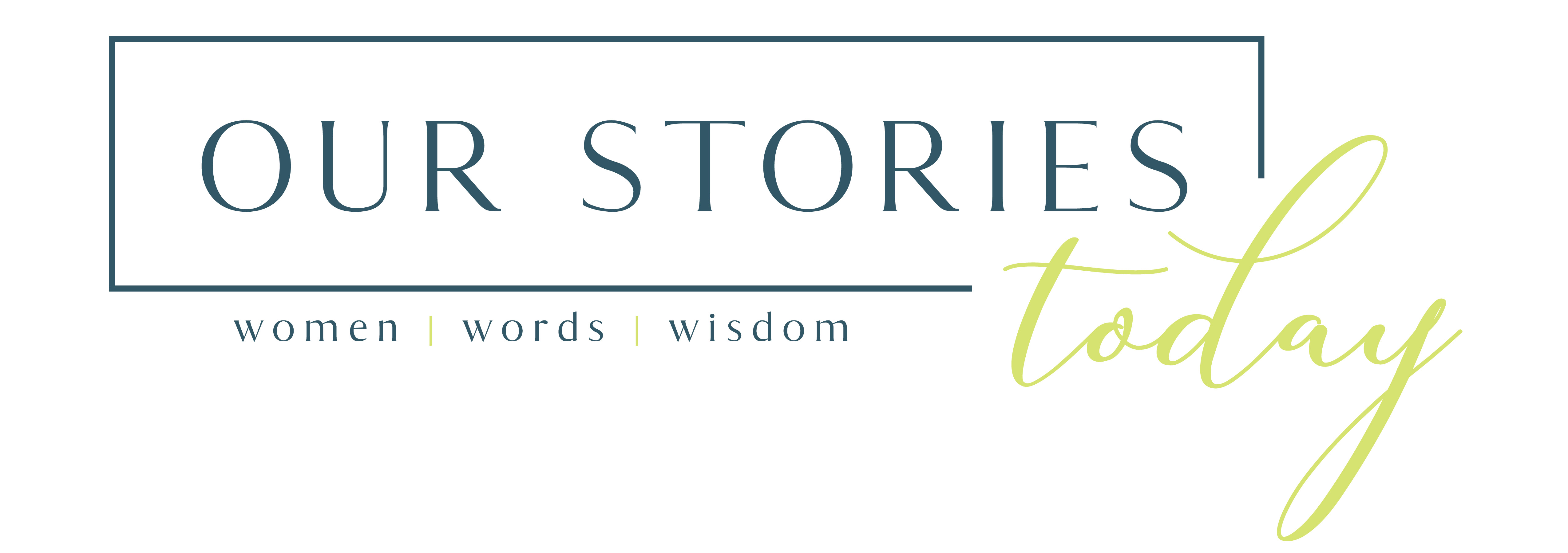
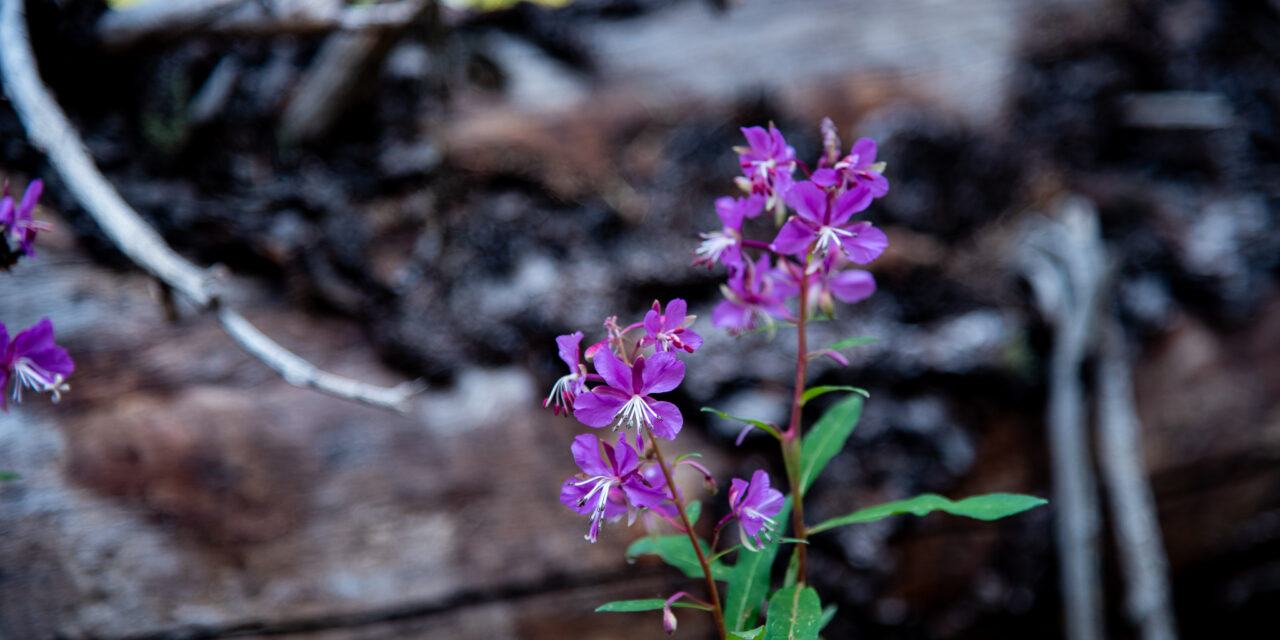
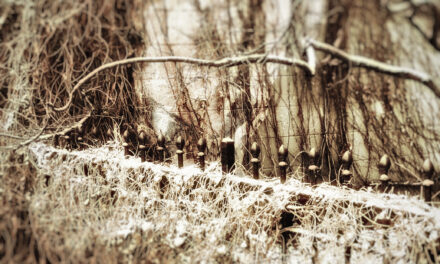
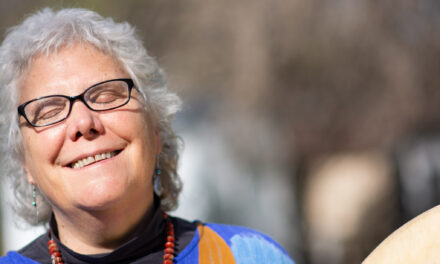
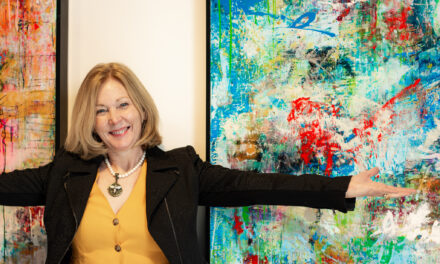
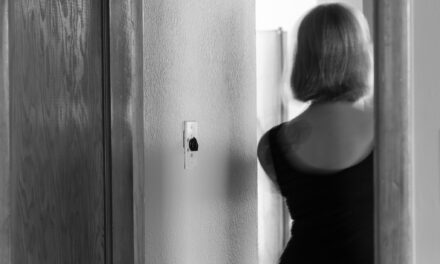
Very well said Robin. I love how well you can express your feelings with words. What a great way to process those feelings.
Thank you, Marsha–yes words have always been a powerful tether for me…